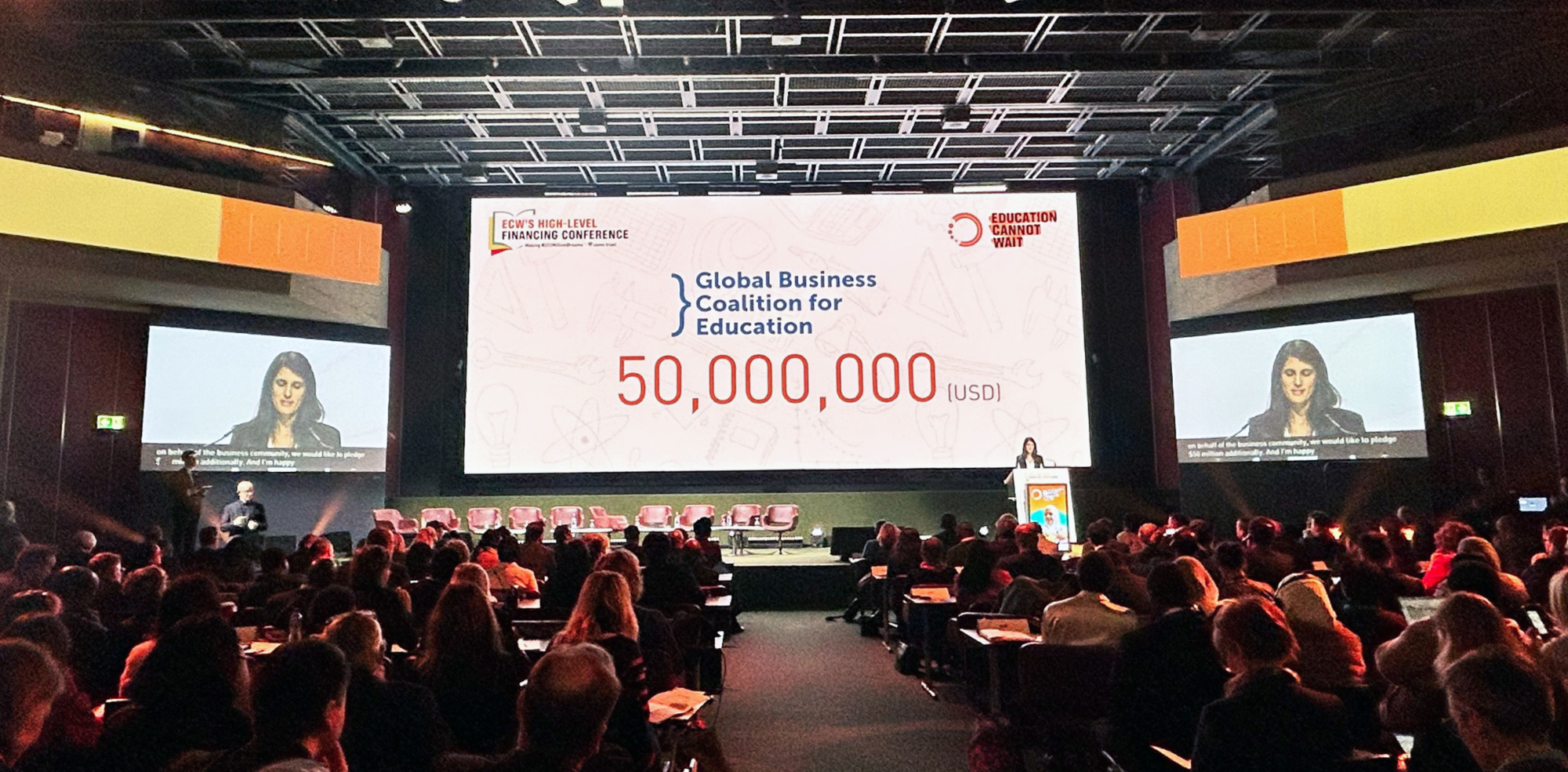GBC-Education launches rapid response fund for education in emergencies

News
Businesses can now agree on desired strategy and activity before a crisis situation happens.
When a natural disaster or humanitarian crisis strikes, many companies instinctively want to do something to help – just as millions of individuals do. But very often they don’t have the wherewithal or the contacts to formulate a response that makes the most of their resources and expertise, and which is quick enough to make a difference in the crucial early stages of an emergency or conflict.
A new initiative from the Global Business Coalition for Education aims to bridge those gaps by helping businesses support education in emergencies in a timely fashion. The Global Disaster Relief and Education Response Fund will provide businesses with on-the-ground information and ready-to-go partnerships to raise and distribute funds within 30 days of an emergency in support of education. It will help companies make an immediate contribution to a relief effort, supply due-diligence vetting of partners, and work with a company before an emergency happens to establish its priorities so that the right action can be taken with agreed outcomes in mind.
The fund was officially launched on February 16 at the financing conference of Education Cannot Wait, the UN global fund for education in emergencies and protracted crises, by Emily Friedman, Head of Business Impact at the Global Business Coalition for Education.
“We think GBC-Education is well positioned to help businesses become a leading force in delivering much-needed support for education in the initial stages of emergency response and recovery,” said Emily.

Emily Friedman announces a pledge of $50 million from the business community to support education in emergencies.
“We have expertise from prior corporate engagements in education in emergencies, and a great network of global and local partners to help businesses address key challenges.”
The fund was unveiled by Emily in a packed conference hall in Geneva, alongside a pledge of $50 million over four years made to ECW by GBC-Education on behalf of the business community.
The first $38 million of the pledge is already underway, with more than 70,000 laptops and learning devices being distributed by local NGOs and international agencies to schools, teachers and caregivers in Ukraine and to Ukrainians who have fled the war to other countries. HP and Microsoft, partners of GBC-Education, were the initiative’s supporters.
Identifying trustworthy local organizations is challenging and time-consuming, and the location and nature of a disaster are unpredictable, so we can remove so many of the uncertainties businesses would normally face in responding to an emergency.
Emily Friedman, Head of Business Impact at the Global Business Coalition for Education
“The announcement was very well received. People seem pleased that the business community was stepping up to pledge $50 million to education in emergencies,” said Emily.
At the conference ECW received pledges of $826 million from donor governments, the private sector, philanthropic foundations and civil society organizations to deliver its 2023-2026 Strategic Plan.
GBC-Education, an initiative of Theirworld, has been campaigning for education in emergencies for a decade.
Both organizations have made the case that when natural disasters and humanitarian crises strike, education is often the first service to be disrupted and the last to be restored for marginalized children. Yet access to safe, quality education in crisis and emergency situations is vital for children. Schools provide stability, safety, and hope through continued learning.
Every year, nearly 40 million children have their education interrupted by natural disaster. The devastating 2021 earthquake in Haiti alone left 300,000 students out of school for months as 70 percent of schools in the affected region were destroyed. The disruption caused to education in Turkey and Syria will undoubtedly by very high.
With their in-country knowledge and on-the-ground presence to identify needs and challenges in different contexts and different types of crises, United Nations agencies and ECW will be key partners of the fund.
ECW has been a valued partner for the Ukraine crisis, providing initial emergency support to refugee-hosting countries and a platform for action so that GBC-Education was able to leverage its contribution in a coordinated way with partners for maximum effectiveness. The program also involves the Ukrainian government and serves as a strong case study of GBC-Education coordinating the private sector, central government and international and local NGOs. The Global Disaster Relief and Education Response Fund aims to replicate that success.
